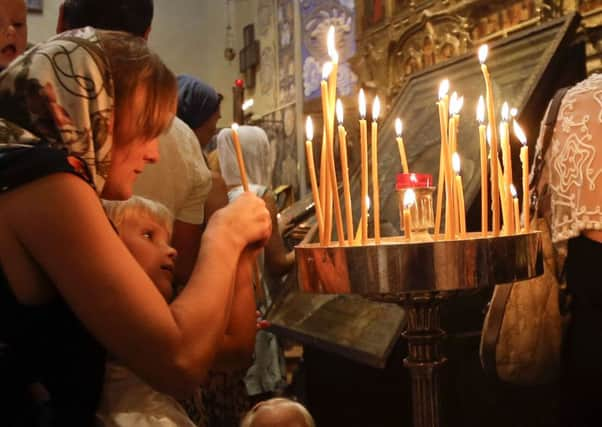Qari Asim: Do not let truck horror poison attitudes in UK


There is no firm evidence that the so-called Islamic State (IS) network directed the attack, however, its media agency has claimed he was ‘one of its soldiers’. The fact that it has taken IS more than a day to claim responsibility for his actions indicates that Bouhlel did not have close affiliation with this terrorist group. Whether or not the murderer was affiliated with IS, the mere fact that he has a Muslim name gives some the confidence to claim that Islam is responsible for the horrors committed by the savage murderer. European Muslims once again find themselves in a position of having to publicly disassociate themselves with the actions of the ruthless murderer, even though several Muslims are among the victims.
In order to deal with the growing threat caused by terrorism, we need to move away from the approach that Muslims are synonymous with terrorists. This approach is not only unhelpful but misguided. British Muslims – like the rest of British people – stand united with the people of France in this tragic hour: our thoughts and prayers are with the families and friends of the victims of these horrific attacks. Whether the murderous truck driver was a lone-wolf or inspired by a terrorist network, his monstrosity is not shared by Muslims across the globe.
Advertisement
Hide AdAdvertisement
Hide AdIn fact, the scant details that we have come to learn about Bouhlel are that he was not religious at all. “He did not go to the mosque, he did not pray, he did not observe Ramadan”, according to the cousin of Bouhlel’s estranged wife. His neighbour has described him as “depressed and unstable, even aggressive.” In this vein, Bouhlel is no different to the Paris bomber, Ibrahim Abdeslam, who was not religious.
As a Muslim, I am repulsed, sickened and outraged at the carnage in Nice. How do you explain the thought process of a man who purposefully runs over infants in strollers? I am fearful of the next attack, which could happen anywhere. I am equally concerned about the rise in xenophobia and increase in hatred towards Muslims, which can only lead to further division and destruction.
We need to analyse the psyche of the recent terrorists who have committed massacres in Europe. They, by and large, tend to be young people who feel inadequate, full of unfulfilled ambitions, frustrated with their own personal failures, angry at real or perceived injustices, and who blame other people or institutions for their misfortunes. Extremist networks manipulate these individuals, support their grievances and reinforce their belief that the cause of their frustration is the society around them.
We also need to recognise that these terrorist attacks are not inspired by a mainstream understanding of Islam, rather on a distorted interpretation of Islam. All terror attacks have one thing in common: the desire to deepen divisions in society and provoke hatred, suspicion, fear and anger.
Advertisement
Hide AdAdvertisement
Hide AdSome politicians – whether it be Nigel Farage, Marine le Pen or Donald Trump – leap into this trap enthusiastically for their own political gains. Nice is where the far-right National Front’s xenophobic, anti-immigration rhetoric has reaped some of its best electoral scores in recent years, but has also deepened ethnic divisions in society. If political opportunism, hateful rhetoric and racial tensions are left unchallenged then open-minded societies can be turned into a war zone within a few years. We saw this happening in Bosnia in July 1995. Only 21 years ago systematic ethnic cleansing of Bosnian Muslims took place in Europe. The conflict in Bosnia started with a lack of tolerance of the “other”, politics of hatred, leading to dehumanisation of a community. If it can happen elsewhere in Europe, it can happen here in Britain.
The fact that there has already been a 42 per cent rise in the number of hate crimes reported in the aftermath of the EU referendum shows that the result has given a new found confidence to those who may have previously expressed their views privately.
The savage murders in Nice are unfortunately the latest in a long line of attacks and shootings in recent weeks ,including in Dallas, Medina, Dhaka, Istanbul, Dhaka and Orlando. We are facing a complex, multi-faceted threat which cannot be beaten with conventional warfare alone, or legislation and marginalisation.
Meaningful coexistence requires hawkish vigilance, the voluntary, civic and social policing of our rhetoric and a genuine commitment to inclusion and tolerance. A failure to adhere to these principles is likely to have catastrophic consequences for the future of peaceful coexistence.